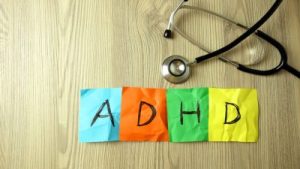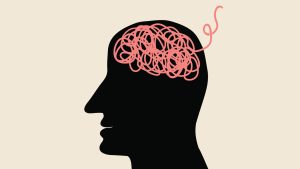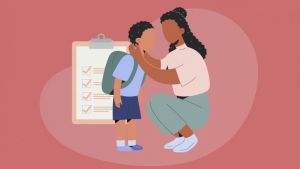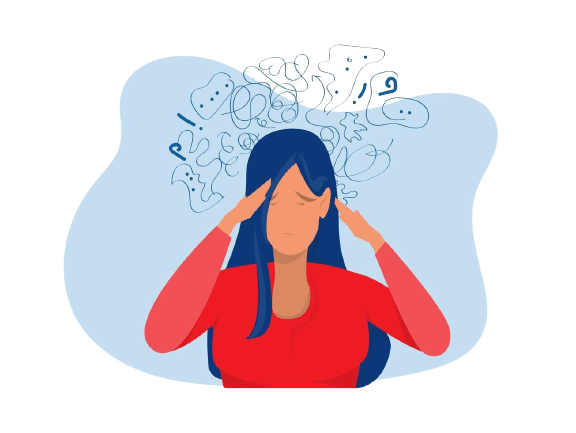Do you find it hard to focus on tasks? Are you always fidgeting and feeling restless? If so, you may have ADHD. Attention Deficit Hyperactivity Disorder is a condition that affects millions of people in the United States, and it can make everyday life very difficult. This article will discuss 10 facts about ADHD, including how to get an ADHD test and how can you get the treatments available.
What Is ADHD?

Attention deficit/hyperactivity disorder (ADHD) is a disorder that affects how well people can focus and pay attention. People with ADHD also might have problems with sitting still and being less impulsive.
ADHD is a common mental disease in children. It affects about 11% of children in the US. Boys are more likely to have it than girls.
There are three types of ADHD: inattentive type, hyperactive-impulsive type, and combined type. Some people only have problems with one of the behaviors listed above. Others have them all.
- Inattentive type: People with this type of ADHD have problems paying attention. They might not be able to focus on tasks or they might lose focus easily.
- Hyperactive-impulsive type: People with this type of ADHD are very active and can’t sit still for long periods of time. They also might act without thinking about the consequences.
- Combined type: This is the most common type of ADHD. People with combined type have problems with both paying attention and being active.
What Causes ADHD?

Scientists don’t know exactly what causes ADHD, but they think it might occur due to a combination of genes and environmental factors.
- Genes: ADHD may be passed down from parents to children.
- Environmental factors: A person’s environment might also play a role in causing ADHD. For example, exposure to lead or cigarette smoke during pregnancy might increase the risk for ADHD.
What Are the Symptoms of ADHD?
People with ADHD have problems paying attention and might move around a lot more than other people. They might also have problems with impulsiveness.
People with ADHD often:
- Have trouble focusing and paying attention
- Are very active, restless, or fidgety
- Make careless mistakes or take risks without thinking about the consequences
- Struggle to stay organized and finish tasks
- Have trouble controlling their emotions
How Is ADHD Diagnosed?
There is no one test to diagnose ADHD. A doctor will look at a person’s symptoms and medical history to make a diagnosis. The doctor might also do some tests, such as:
- A physical exam to check for health problems that could cause similar symptoms
- A blood test or urine test to check for ADHD or other problems
- A test to measure how well a person can focus and pay attention
What Is ADHD Test?

ADHD is a mental disorder that makes it hard to sit still and pay attention. People with ADHD have trouble staying focused and are easily distracted. They might fidget or talk too much, and also have problems with organization.
The ADHD test is a questionnaire that can help determine if someone has the disorder. This test has 18 questions and usually takes around 5 minutes to complete. The test is designed for adults but can also be used with children who are at least 6 years old.
Objectives Of An ADHD Test
The objectives of an ADHD test are to:
- Assess whether someone has the symptoms of ADHD
- Determine the severity of ADHD symptoms
- Identify other conditions that may be causing similar symptoms
The ADHD test should be taken by anyone who suspects they may have the disorder. It can also be helpful for parents who are considering having their child tested for ADHD.
What Is Included In The Test?
The ADHD test consists of 18 questions that ask about a person’s ability to focus, stay on task, and control their behavior. There is also a section that asks about any coexisting conditions, such as anxiety or depression. The test takes about five minutes to complete.
Benefits Of Taking an ADHD Test

The benefits of taking an ADHD test include:
- Gaining a better understanding of how ADHD affects daily life: The ADHD test can help people understand how the disorder affects their daily life. This can be helpful for obtaining appropriate treatment and support.
- Getting a diagnosis: A diagnosis of ADHD can provide relief to some people who have been struggling with symptoms for years but did not realize they had a mental health condition.
- Knowing what treatments are available: The ADHD test can provide information on what treatments are available and how best to treat ADHD.
- Helping to determine if medication is needed: The ADHD test can help determine if medication is needed and what type of medication would be most effective.
- Making it easier to get the right treatment and support: Having an ADHD diagnosis can make it easier to get the right treatment and support.
- Get help from doctors, therapists, or schools: After taking the ADHD test, some people may need help from doctors, therapists, or schools to get started on treatment.
- Find out about treatments and medications available to you: After taking the ADHD test, you can learn more about the treatments and medications available to you. This information can be helpful in making a decision about treatment.
The ADHD test is an important step in getting help for ADHD. It can provide information on how to best treat the disorder and improve the quality of life.
The ADHD test is useful for finding out if someone has symptoms of ADHD. It can help decide what treatment they need. It is important to note that a diagnosis should only be made by a qualified professional. If you are worried about your or your child’s ability to focus, behave or stay on task, talk to the doctor.
ADHD Test Sample Questions
Below are some examples of questions from the ADHD test. To take the full test, please visit our website.
- Do you have difficulty paying attention to details?
- Are you having trouble staying on task during a conversation or activity?
- Do you frequently fidget with your hands or feet?
- Do you often feel restless and unable to sit still for long periods of time?
- Have you ever found it difficult to control your behavior when excited, frustrated, or angry?
If you answered yes to any of these questions, you may have ADHD.
Treatment Options After An ADHD Test
There are many different treatment options available after an ADHD test. Some people may need medication in order to help them focus and stay on task. Others may benefit from therapy or counseling, which can help them learn how to better manage their symptoms. There are some changes to your life that can be helpful. Sleep and exercise are good for you. It also might help to learn how to better organize your time and tasks. It can take a little time to find the right treatment for you, but if you keep trying and being patient, you will find it. Let us understand these treatment options in detail.
Medications For ADHD

There are many different types of medications that can prescribe for ADHD.
- Stimulants are the most common type of medication, and they work by increasing dopamine levels in the brain. This helps to improve focus and attention span.
- There are also non-stimulant medications available that may be a better fit for some people. It is important to work with your doctor to find the right medication and dosage for you.
- Antidepressants are often prescribed to people with ADHD. They work by increasing serotonin levels in the brain, which can help to improve mood and reduce impulsiveness.
- Beta-blockers are medications that aim to treat high blood pressure. They can also be helpful in treating ADHD symptoms because they help to calm the nervous system.
- Methylphenidate (Ritalin): Methylphenidate is a stimulant medication that is most commonly prescribed for ADHD. It works by increasing dopamine levels in the brain. However, some common side effects of methylphenidate include nausea, vomiting, headache, and stomachache. It is also important to note that this medication can be habit-forming, so it should only be taken as prescribed by your doctor.
- Concerta (methylphenidate): Concerta is a long-acting form of methylphenidate that lasts up to 12 hours. This may be a good option for people who have trouble remembering to take their medications regularly. However, the most common side effects of Concerta include headache, stomachache, and decreased appetite.
- Amphetamine/Dextroamphetamine (Adderall): Adderall is a stimulant medication that contains a combination of amphetamine and dextroamphetamine. It works by increasing dopamine levels in the brain. However, some common side effects of Adderall include headache, stomachache, and difficulty sleeping.
You should only take medications as prescribed by your doctor. You should never stop or change them without talking to your doctor first because this could cause problems with your health and/or make your ADHD symptoms worse.
Therapy And Counseling

Therapy and counseling can help people with ADHD. The therapist can teach you how to better manage your symptoms. They will also give you support if you have other problems.
- Behavioral Therapy: Behavioral therapy is a type of therapy that focuses on changing the behaviors that are causing problems. It can be helpful for children and adults with ADHD. Moreover, the therapist will work with you to identify the behaviors that need to change, and then they will help you develop strategies to change them.
- Cognitive Behavioral Therapy: Cognitive-behavioral therapy (CBT) is a type of therapy that helps you understand how your thoughts affect your mood and behavior. It can be helpful for people with ADHD. Moreover, the therapist will help you figure out what is causing your problems. Then they will teach you how to change them.
- Family Therapy: Family therapy is a type of therapy that involves the entire family. It can be helpful for children and adults with ADHD. The therapist will work with the family to identify the problems that are causing difficulty. They will then help the family develop strategies to address them.
- Group Therapy: Group therapy is a type of therapy that involves meeting with a group of people who have similar problems. Also, it can be helpful for people with ADHD. Moreover, the therapist will help you learn how to better manage your symptoms and deal with the challenges that come up.
- Counseling: Counseling is a type of therapy that involves meeting with a counselor one-on-one. It can be helpful for people with ADHD. Moreover, the counselor will help you learn how to better manage your symptoms and deal with the challenges that come up.
Education And Support Groups
- Education: There are many educational programs available for people with ADHD. These programs can help you learn more about ADHD and how to manage your symptoms.
- Support Groups: Support groups are a great place to connect with other people who understand what you’re going through. They can provide support, information, and advice.
- National Attention Deficit Disorder Association (NADDA): NADDA is a national organization that provides education and support to people with ADHD and their families.
- Children And Adults With Attention Deficit Hyperactivity Disorder (CHADD): CHADD is an organization that provides education and support to children and adults with ADHD.
- Attention Deficit Disorders Association of Canada (ADDA): ADDA is a Canadian organization that provides education and support to people with ADHD and their families.
Conclusion
The ADHD tests are there to help you understand how your child’s brain works. This can help you work out what you need to do so that they can have the best life possible. Also, children who have ADHD don’t need medicine to help them. There are other things that parents can do for their children and there is more than one type of treatment. Make sure that when you are looking for a treatment, you only work with professionals who have training in behavioral therapy for children with ADHD. Finally, as always, if you have any questions about this blog post please don’t hesitate to ask!
A Word From Therapy Mantra
Your mental health — Your psychological, emotional, and social well-being — has an impact on every aspect of your life. Positive mental health essentially allows you to effectively deal with life’s everyday challenges.
At TherapyMantra, we have a team of therapists who provide affordable online therapy to assist you with issues such as depression, anxiety, stress, workplace Issues, addiction, relationship, OCD, LGBTQ, and PTSD. You can book a free therapy or download our free Android or iOS app.


